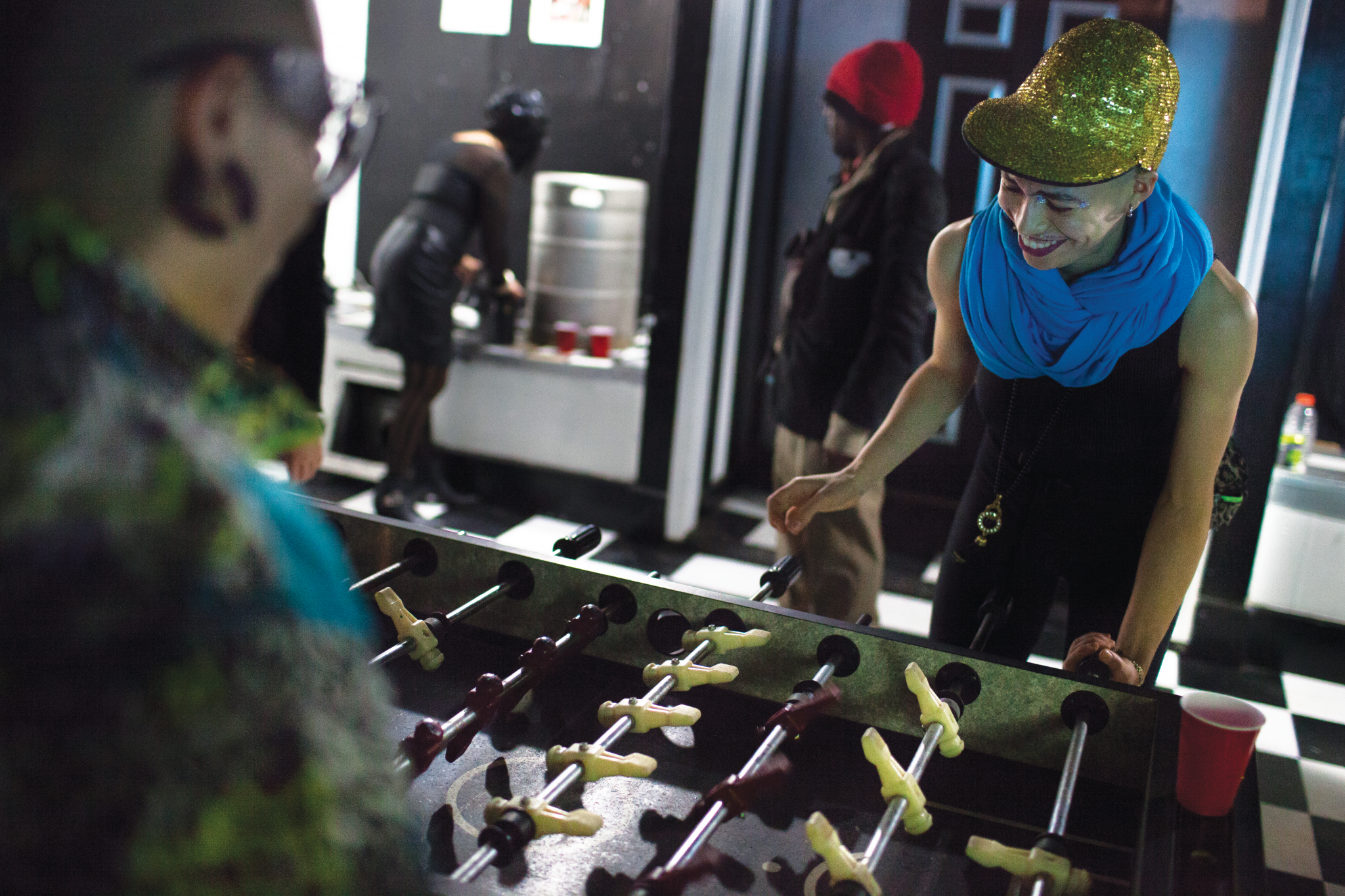It’s a moody September evening at the Church of Templehead—clouds bruise the sky, and bursts of rain seem intent on ruining the party. Templehead, a DIY artists’ living space converted into a queer- and feminist-focused community venue, sits on the corner of 19th and Allport in Pilsen. It’s in a quiet pocket of the neighborhood, removed from 18th Street’s trickle of winers and diners. Tonight is JOSE FEST, a performance art festival named after Chicago-based artist Jose Hernandez and featuring an eclectic set of theatrical vignettes.
Within Templehead’s hallowed halls, the performer is the true believer, praying to the god of all things weird, wacky, and wonderful. Yet the performers in this church are not “anointed ones” possessing special knowledge. In fact, esotericism is the enemy.
In the contemporary mainstream, the definition of “performance art” is growing ever more elusive. The genre most recently recalls the celebrity co-signs of Jay-Z and his raptastic “Picasso Baby” or James Franco’s pseudo-oblivious staring contests with Marina Abramovic. Even David Blaine’s self-torture stunts fit the definition of performance art. To the untrained eye, performance art might seem to be a blanket term for almost anything that falls outside the artistic norm.
However, JOSE FEST offered works that were accessible to viewers raised on a steady diet of still lifes and linear narratives, without being boring.
A performance that might best be described as a Technicolor liturgy, for example, overlaid familiar rites with outlandish visuals.
A procession of men and women costumed in bedazzled vintage threads and dramatic make-up crossed the stage in unison, as though possessed, while two hooded men—one playing a synthesizer and the other reciting a haunting spoken word piece about political tragedy and war—served as organist and priest. The final tableau was a man and woman kissing, perhaps signifying a deeper union of souls.
In another act, a male and female duo re-enacted what appeared to be a senior citizen’s fever dream in “Virtual Florida.” An old overhead projector set the scene, casting a diaphanous palm-tree forest against one wall. The performers, wearing brightly colored wigs, sunglasses, and crudely sewn fatsuits, played retired girlfriends; in unison they drank heavily, pranced around, and, naturally, fell all over each other. (Presumably what happens in Virtual Florida, stays in Virtual Florida.)
In keeping with its proclivity for this sort of theatrical hodgepodge, Templehead is the name of the title character in a post-apocalyptic feminist opera written by Heather Lynn, the space’s founder.
In the story, nature is destroyed and the surviving women all resemble garbage, an allegory for Lynn’s real-life struggle with the confusion, destruction, and alienation wrought by schizophrenia.
“Templehead was the imaginary friend of one of the girls living in this world,” Lynn says. “[Templehead] showed the little girl everything was possible. It seemed like a really powerful symbol for what we wanted to do.”
A self-taught interdisciplinary artist, Lynn, 35, began hosting events and workshops at Templehead with her partner, Michael Perkins, in 2012, after finishing an artistic residency at Reversible Eye Gallery in Humboldt Park.
Lynn is passionate about ensuring that Templehead is a safe and inclusive space, as well as an accessible platform for up-and-coming local artists.
“A lot of music spaces, they focus on touring bands. I’m really interested in building up Chicago bands,” she says. “I think Chicago is one of those cities that’s overlooked, and people come here as like a stepping stone to get to New York or L.A. and being from here, I’m pretty defensive about that.”



